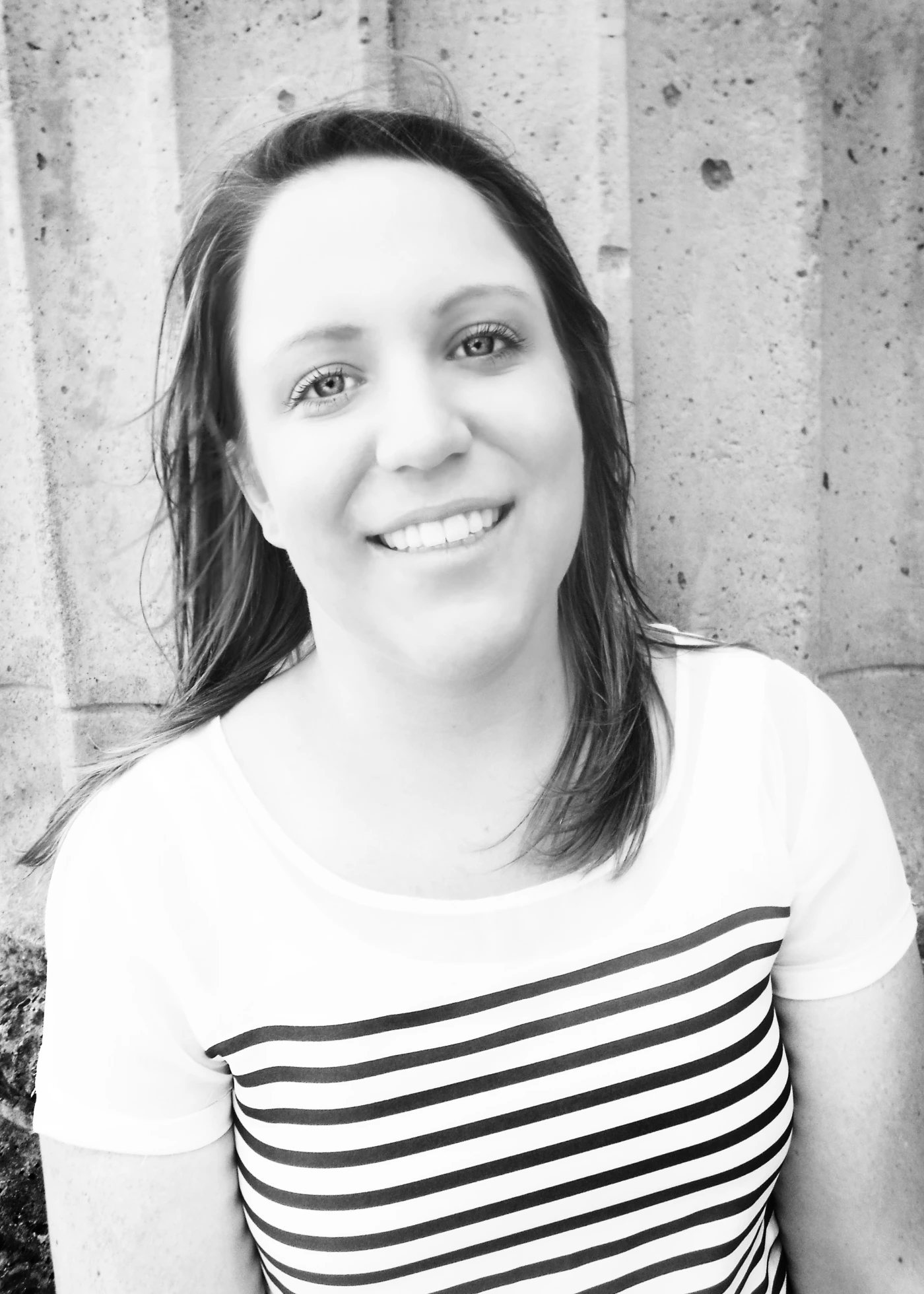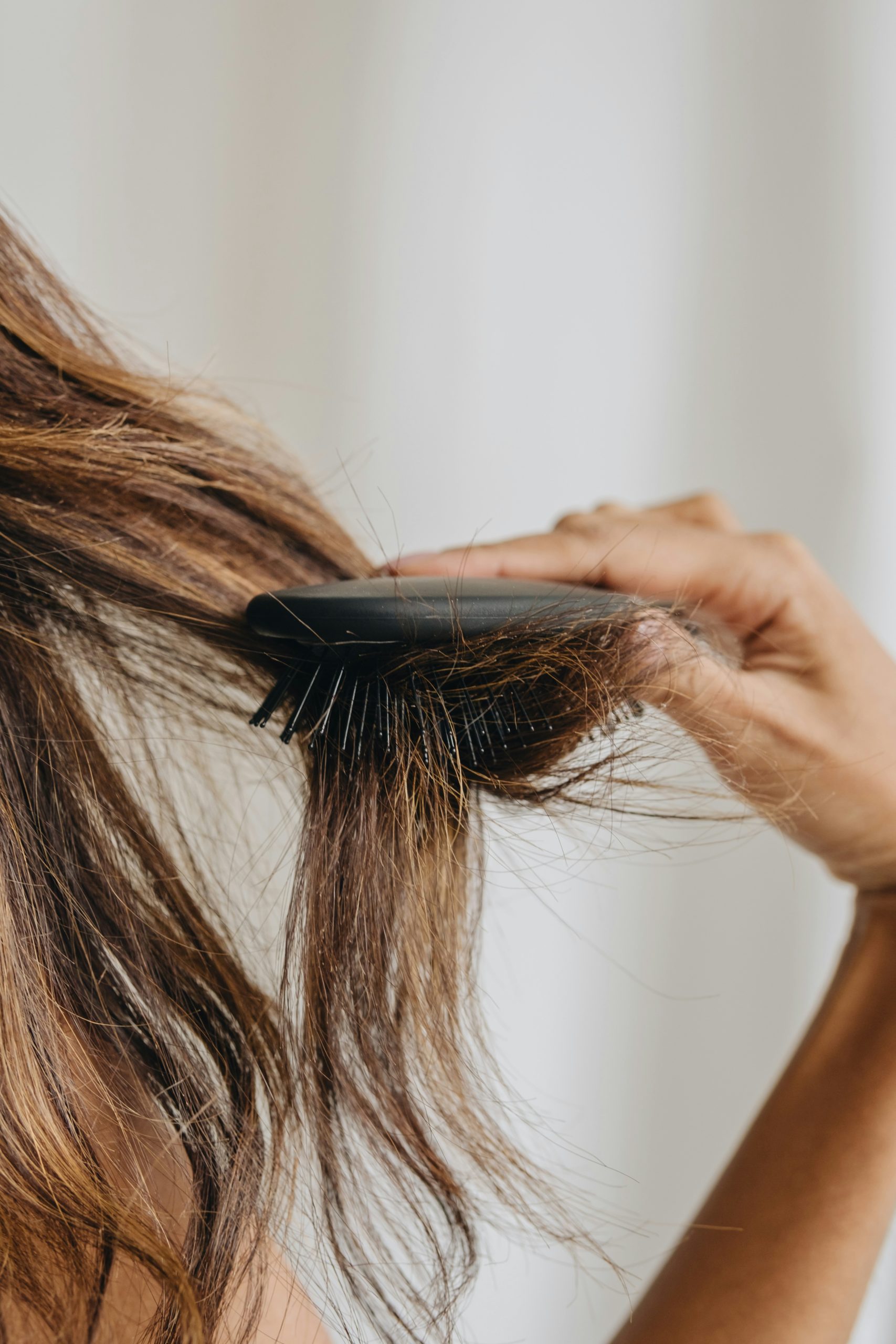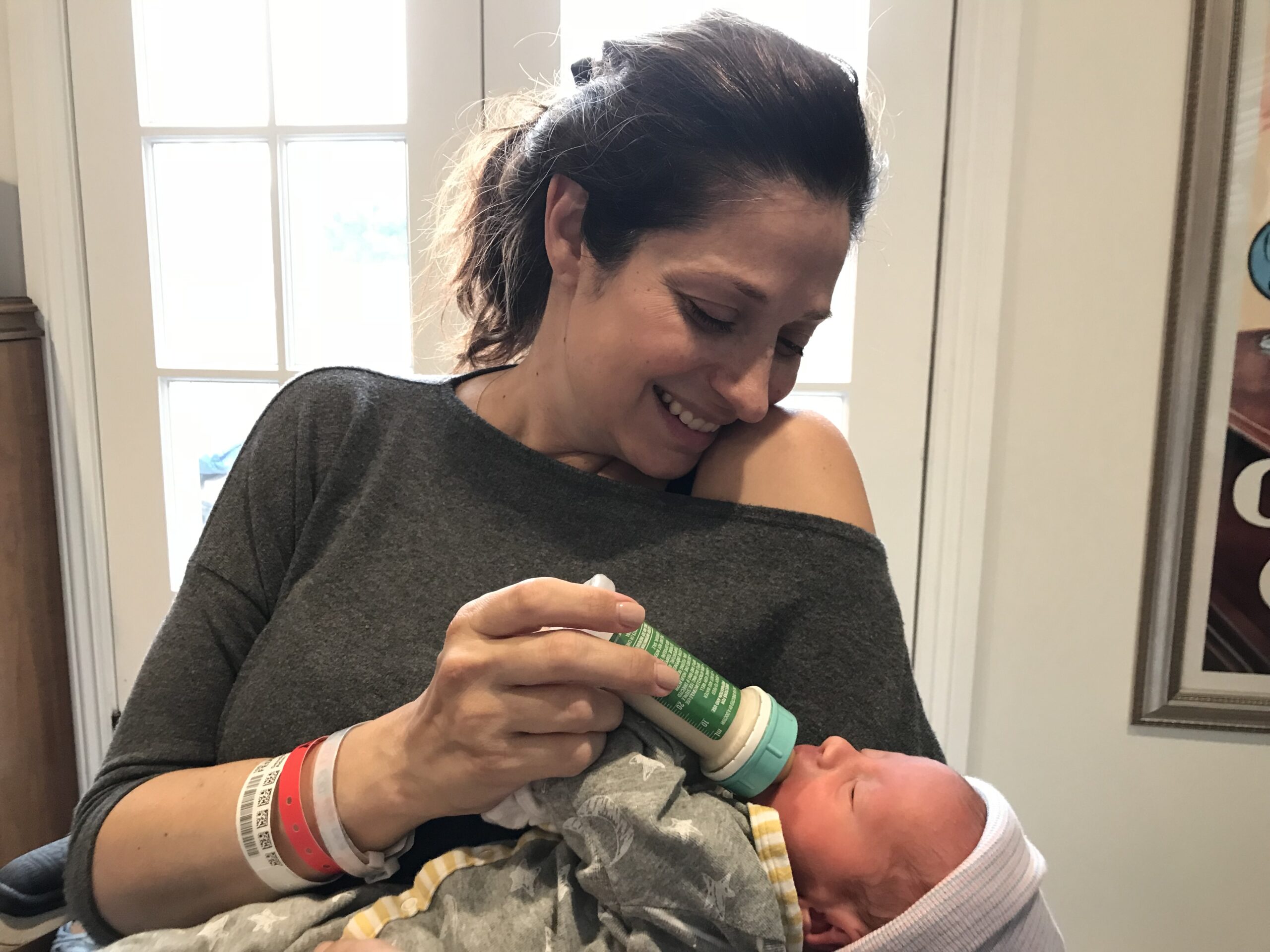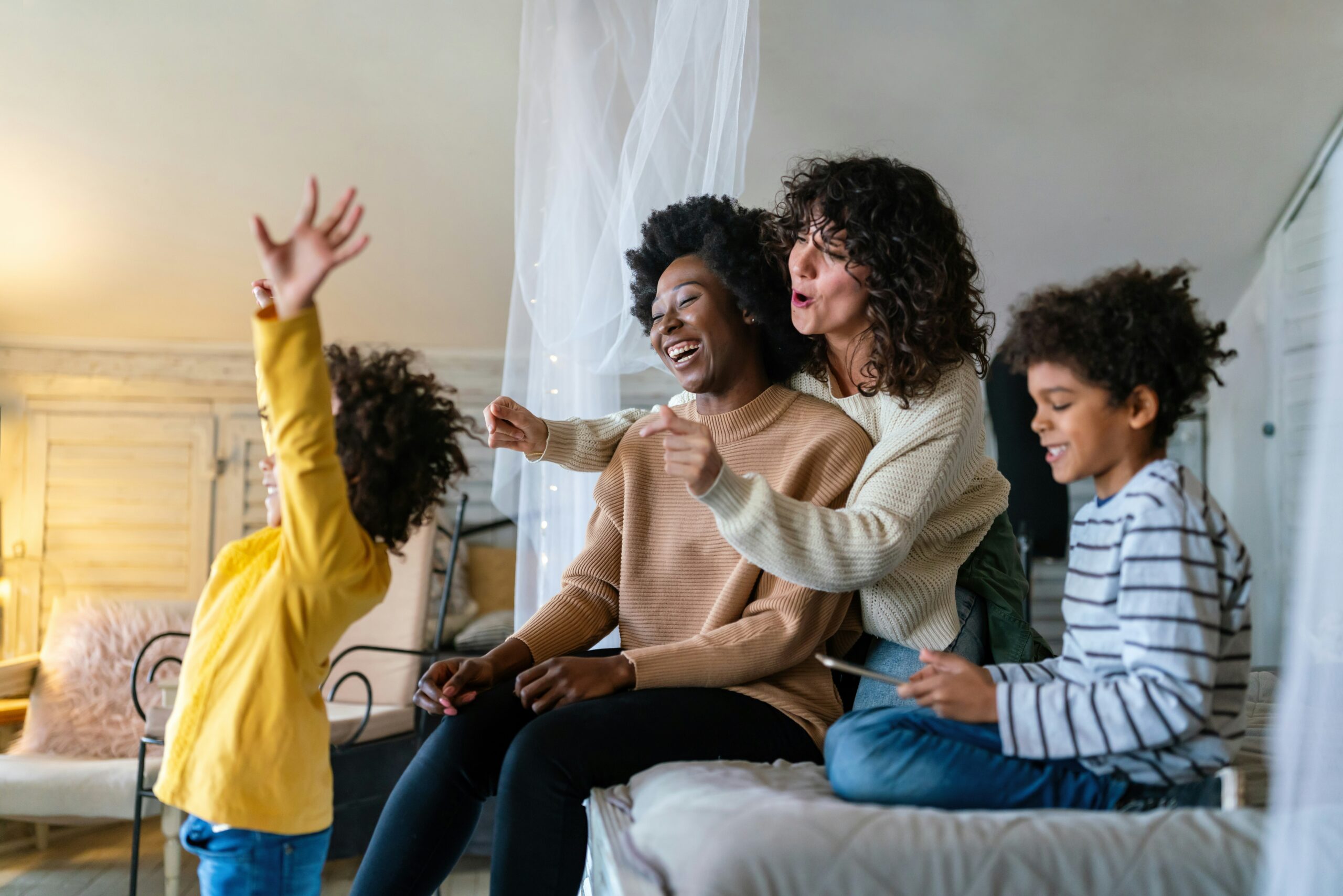To put it lightly, postpartum health is messy.
Your body has already undergone so many changes throughout pregnancy and while giving birth, but the postpartum period, too, is about more than just recovery. Your body is still undergoing more changes, from emotional shifts to changes in hair, breasts. The postpartum period can feel as topsy-turvy as any other (plus, your body is also recovering from birth and you’re adjusting to the transition taking place in your relationships).
While any number of the changes that can happen during the fourth trimester (and beyond) can bring up a mix of complicated—and sometimes competing—feelings, you might not expect the feelings you feel when it comes to dealing with postpartum hair loss and subsequent regrowth. After all, most new parents aren’t used to so much loss and regrowth all at once.
Understanding how and why postpartum hair loss happens, when you might start to notice it, and how you can manage it can help you feel more prepared for it if it happens to you and may help you navigate the emotional ups and downs that may accompany it.
Here, everything you need to know to guide you through the postpartum hair loss period.
- Why does postpartum hair loss happen?
- When your postpartum hair loss will be noticeable
- Does the hair you lose postpartum grow back?
- How to manage postpartum hair loss
Why does postpartum hair loss happen?
You’re adjusting to your new role as a parent, snuggling with your little one, feeding them, burping them, wiping spit-up and butts. And while you probably expected feeling sore after giving birth, navigating some of the ups and downs that come with postpartum hormones regulating, you may or may not be prepared to see that postpartum hair loss starting when it does.
But what causes that postpartum hair loss in the first place?
According to Natalie Stentz, MD, an OB/GYN and women’s health expert, those postpartum hormones are to blame for your extra hair shedding.
“During pregnancy, elevated estrogen levels keep hair in the resting phase, which prevents shedding. After childbirth, when hormone levels return to normal, there is a triggering of the hair shedding phase,” Stentz says. “It’s a natural response to the hormonal changes associated with pregnancy and childbirth.”
Additionally, if you’re breastfeeding, you may not notice much postpartum hair loss until you wean or supplement what your little one is eating. Like with some other postpartum experiences (getting your period back, weight fluctuations, and more!), whether you’re breastfeeding and how long your breastfeeding journey lasts can help shape your postpartum health experience.
Postpartum hair loss is super common. Most people who give birth experience at least some level of postpartum shedding, according to the Cleveland Clinic.
Parents reported that Black parents-to-be can experience changes in hair texture and curl pattern during pregnancy, which is another tricky symptom with which to come to terms.
While you might be stressed to see it start to happen, you can take heart in knowing that it often doesn’t last all that long in the grand scheme of things, Dr. Stentz says. It’s a temporary situation and will slow over time.
When your postpartum hair loss will be noticeable
Knowing that you might lose some hair after giving birth might make you feel a little bit of dread, anticipating that first sighting of hair shedding that seems to be more than usual, but postpartum hair loss generally does not start right after you give birth (though it can, per Healthline). It usually takes a bit of time to kick in.
You’ll be able to tell when your hair shedding is obviously more than the typical 100 or so hairs that people shed daily, according to WebMD. But when might that happen?
Dr. Stentz says that it usually starts happening between three and five months postpartum, with the most shedding happening around month four.
And while it’s good to know that the experience is only temporary, just how long your shedding lasts is individual. Just because your sister or best friend felt like their postpartum hair loss only lasted a few months, doesn’t mean that yours won’t last longer (or wrap up sooner!). Dr. Stentz says that postpartum hair loss typically lasts anywhere from six to 15 months after shedding begins.
Does the hair you lose postpartum grow back?
If you notice that you’re losing more hair than usual and chalk it up to postpartum hair loss, you probably want to know whether or not at least some of that hair is ever going to grow back.
The good news is, the short answer is that it’s pretty likely it will. You may find that your hair is just as full once all is said and done as it was before you were pregnant.
“While the excessive shedding of postpartum hair loss is usually temporary, some women may find that their hair does not return to the same density as before pregnancy. However, for the majority of women, their hair eventually regrows to its pre-pregnancy state, or close to it. The final outcome can vary from person to person,” Dr. Stentz explains.
If you’re worried that your postpartum hair loss might be dragging on too long or is more than seems normal, it’s a good idea to check in with a dermatologist, as Dr. Stentz advises, or another trusted medical professional. According to BabyCenter, hair loss can also be a sign of some health issues, like anemia or thyroid conditions, so it’s a good idea to make sure that there’s nothing else going on (or if there is, you’re able to get treated sooner rather than later).
How to manage postpartum hair loss
There may not be much you can do about your changing postpartum hormones, but you can help manage your postpartum hair loss and support your hair health while your body figures itself out.
Dr. Stentz recommends:
- Using a volumizing shampoo and avoiding a conditioning version (since the conditioning shampoo can weigh down your hair, while the volumizing one will promote bounciness)
- Keeping any conditioner to the ends of your hair
- Considering a haircut, since shorter hairstyles can make your hair look like it has more body and volume
- Avoiding any tight hairstyles (like ponytails) that can pull on your hair
- Sticking with the prenatal vitamins for the time-being
- Making sure you’re eating a healthy, well-balanced diet
- Avoiding heat styling your hair, which can make things worse
Ultimately, postpartum hair loss is very common and doing what you can to support your postpartum health until it has run its course can help you navigate that period. But again, if you’re concerned about the amount of hair you’re losing or how long the shedding is lasting, checking in with your doctor is a good idea because they’ll be able to determine whether it’s something about which to be concerned or not.
The Mother Chapter is here for you as you navigate the postpartum period. From headaches and hair loss to night sweats and beyond, we’re here to accompany you every step of the way. Head to The Mother Chapter to read articles on all facets of the motherhood experience and to join the community yourself.
Author
-

Lauren Schumaker fell in love with food at a young age. After attending culinary school in Chicago, she moved to Athens, GA to earn her master's in journalism at the University of Georgia. While in Athens, she took over the food-focused Locavore column in Flagpole magazine. She was also an editorial intern at Sauce Magazine in St. Louis, where she continued to freelance. Lauren worked as a lifestyle writer and editor for years, with bylines appearing in places like Romper, INSIDER, Tales of the Cocktail and The Everygirl. When she's not working, you can find her in the kitchen cooking, spending time with her dog, Brody, or working on her endless TBR list.
View all posts




